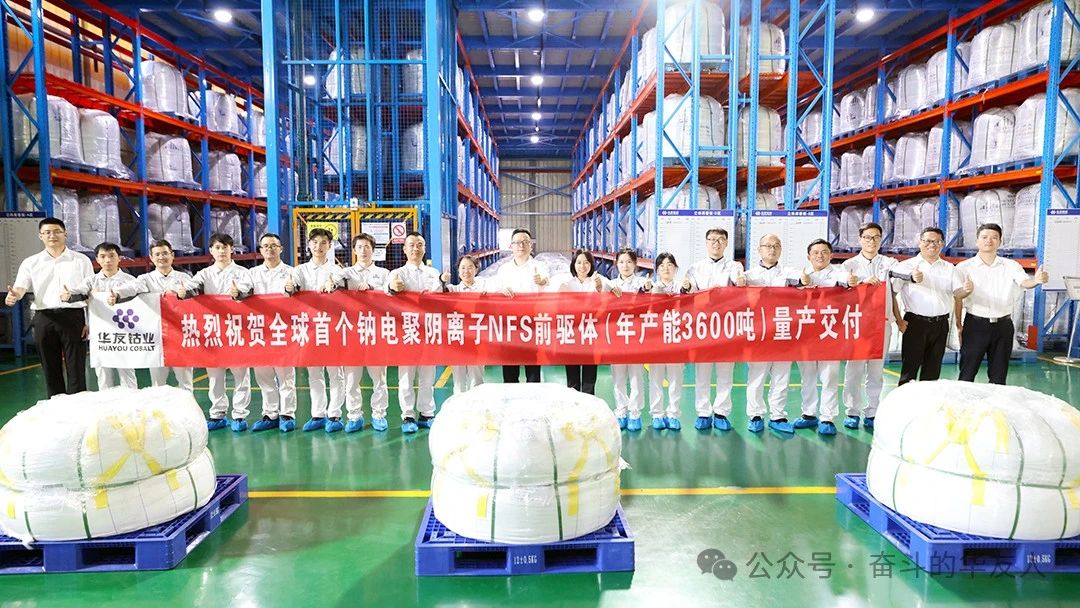On August 28th, Huayou New Materials successfully delivered its first batch of polyanion NFS precursor product materials, achieving an industrial breakthrough in the polyanion NFS cathode technology route for sodium-ion batteries.
Teng Xinxin, General Manager of Huayou Sodium-ion Battery Business Division, pointed out that Huayou's commitment to the NFS technology route in the polyanion path and the pioneering industrial breakthrough is a bold attempt in the new competitive situation of the lithium-ion battery industry, which reflects Huayou's competitive strategy of "product leadership with cost leadership."
The polyanion NFS technology route is characterized by its full-process green and environmentally friendly features, which extracts main materials that meet purity requirements from by-products, further enhancing resource utilization. It provides strong momentum for accelerating the green and low-carbon transformation and upgrading of the industry, and promoting the development of a green circular economy.
According to Huayou, the high voltage platform of the polyanion NFS is expected to significantly drive downstream system integration, meanwhile, the features of high recyclability, high coordination, and multifunctionality determine the ultimate cost competitiveness of NFS technology in mass production.
Since the beginning of 2022, Huayou has been strategically investing in the sodium-ion battery industry and has consistently focused on the development of the polyanion NFS route. It has rapidly completed the construction of the R&D platform and manufacturing facilities for this route, sequentially achieving product pilot testing, large-scale trial process standardization, and the construction and operation of a 3,600-ton mass production line. This has achieved the breakthrough from "0" to "1" in the mass production of polyanion NFS precursors and has created a process route of being highly competitive low-cost, short-process, green technology characteristic. Compared to traditional solid-phase process techniques, Huayou's precursor process products have significant advantages such as higher capacity, better cycling, and better consistency, and have already passed the certification of several leading customers.
There are currently three technology routes for sodium-ion batteries: layered metal oxides, polyanion compounds, and Prussian blue/white. Among them, polyanion compounds are known for their structural stability, long cycle life, high thermal stability, and high operating voltage, making them more suitable for the application of energy storage.
According Electric China, the polyanion route can be divided into phosphate, pyrophosphate, fluorophosphate, and mixed phosphate systems. The main routes in the industry currently are sodium ferrophosphate (NFPP), sodium iron sulfate (NFS), and sodium vanadium phosphate (NVP).






